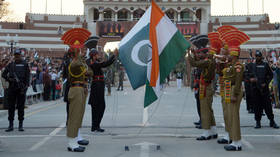High court rules Pakistan’s ‘two-finger’ virginity test for rape victims unconstitutional
A Pakistani judge has ruled that ‘virginity tests’ performed on women who are victims of sexual assault are unconstitutional, describing the archaic examinations as discriminatory and inhumane.
The Lahore High Court announced on Monday that Pakistan’s infamous “two-finger test,” which is not required under law but is sometimes used by authorities investigating rape cases, had no medical or forensic value. The ‘examination’, dating back to British India, involves inserting two fingers into the vagina of the victim in order to ‘determine’ whether or not she is “habituated to sexual intercourse.” The test has been used to argue that women who are sexually active cannot be raped.
Although not legally required, the test was a routine part of criminal proceedings in Pakistan.
In her ruling, Judge Ayesha Malik stated there was no scientific basis for the examination, adding that the invasive and humiliating procedure “offends the personal dignity of the female victim.” Declaring the practice as illegal and unconstitutional, she ordered the government to devise new guidelines, based on international standards, for how to properly handle cases of sexual assault.
The ruling was in response to a petition filed back in March by a group of female activists and a member of parliament.
Pakistan’s Ministry of Law and Justice had signaled during the legal proceedings that it wanted to end the practice. Health authorities also told the court that they wanted to abolish the test.
Anger over high-profile cases involving sexual assault and violence against women has prompted Islamabad to push through reforms. Last month, Pakistan adopted a new law that will create a special court tasked with trying rape cases within four months – a decision made after a gang rape sparked public outcry and protests.
The decree also called for the creation of a national database of sex offenders, and made the public identification of rape victims a felony.
Like this story? Share it with a friend!
















